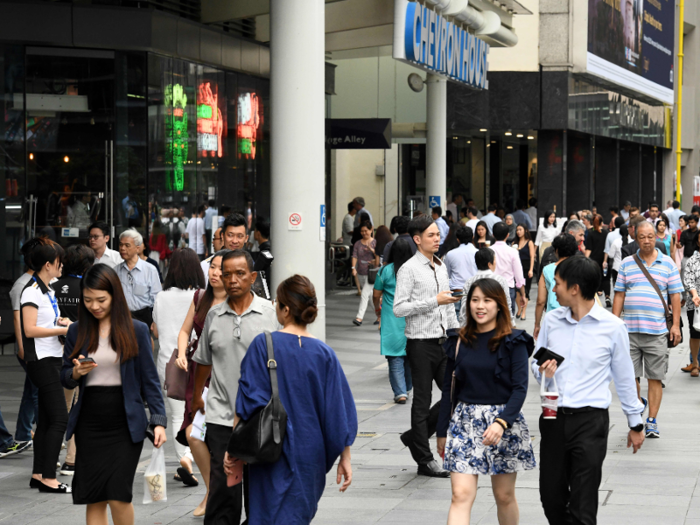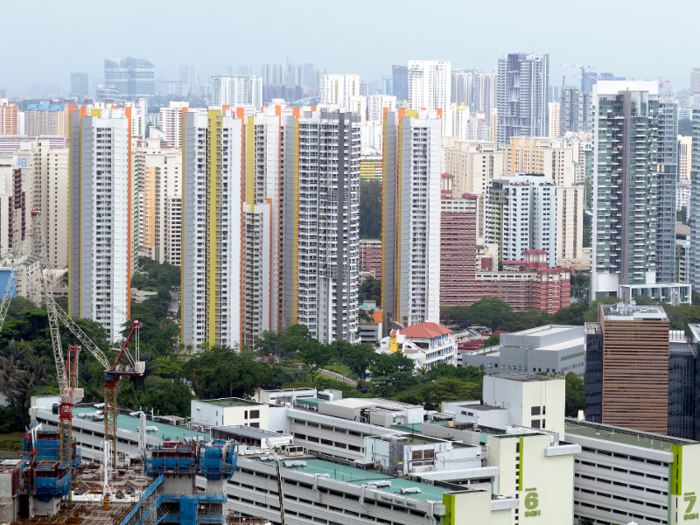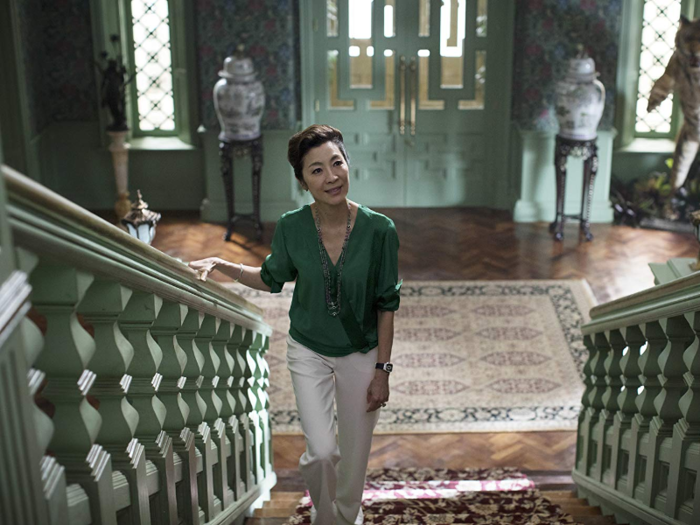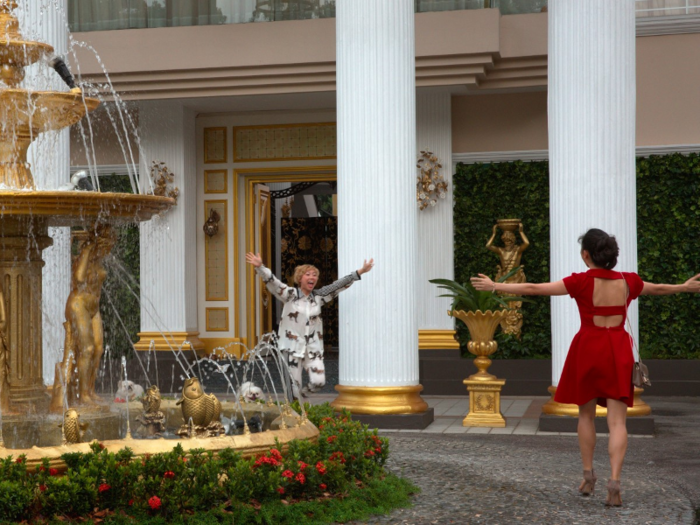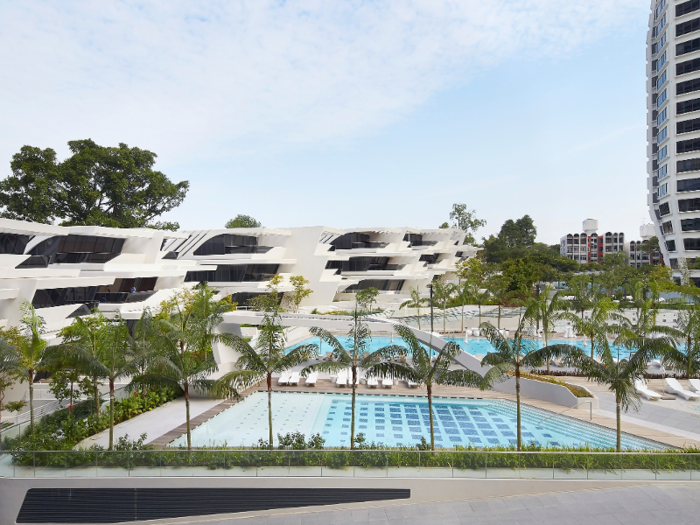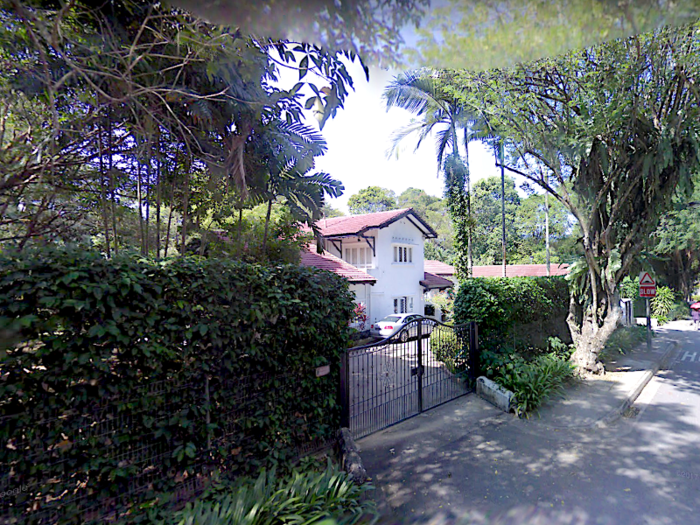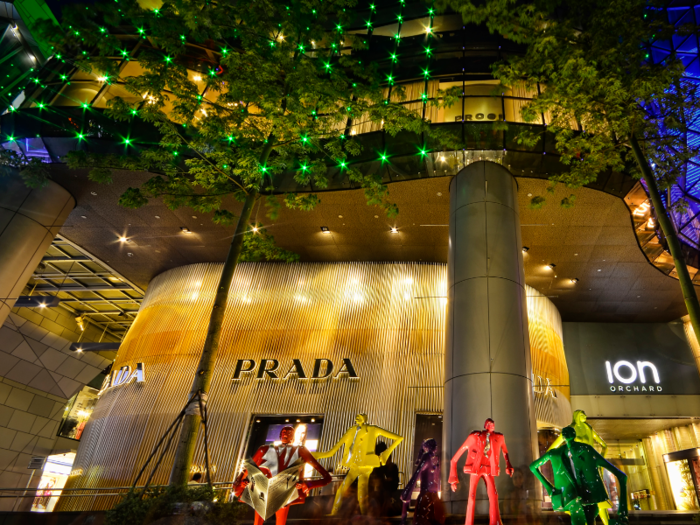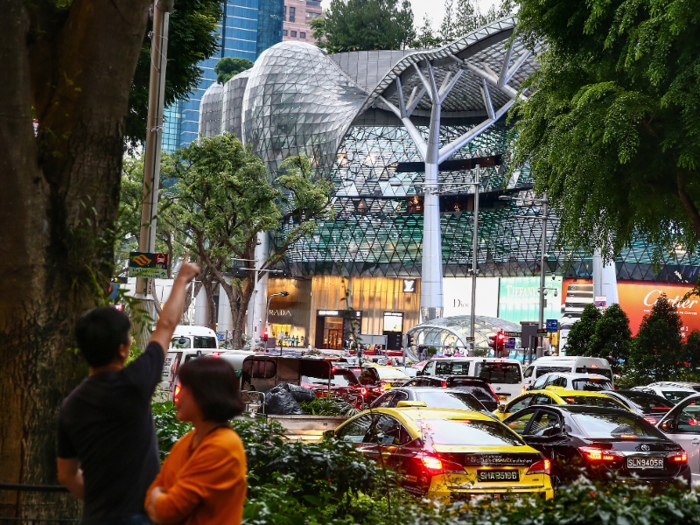- Home
- slideshows
- miscellaneous
- What it's like living in Singapore as a billionaire, where wealthy residents are worth a combined $1 trillion and limited land makes owning a house the ultimate 'status symbol'
What it's like living in Singapore as a billionaire, where wealthy residents are worth a combined $1 trillion and limited land makes owning a house the ultimate 'status symbol'
Singapore is one of the richest cities in the world.

The island city-state off of southern Malaysia has a population of 5.6 million ...
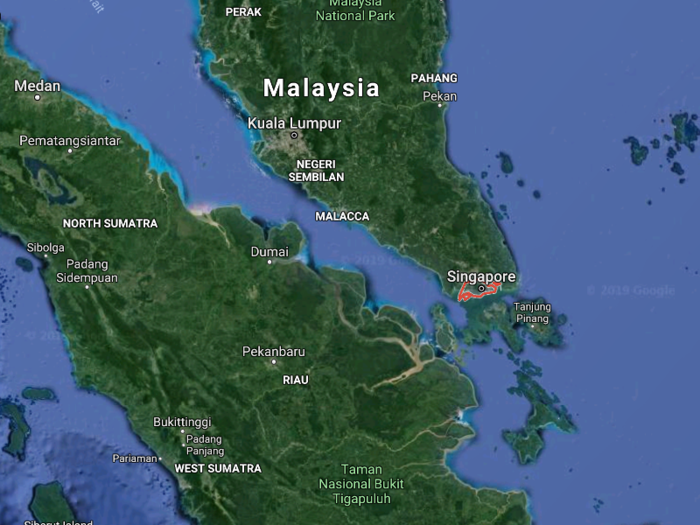
Source: Singapore Department of Statistics
It's home to approximately 44 billionaires, making it the seventh top billionaire city in the world following New York, Hong Kong, San Francisco, Moscow, London, and Beijing.
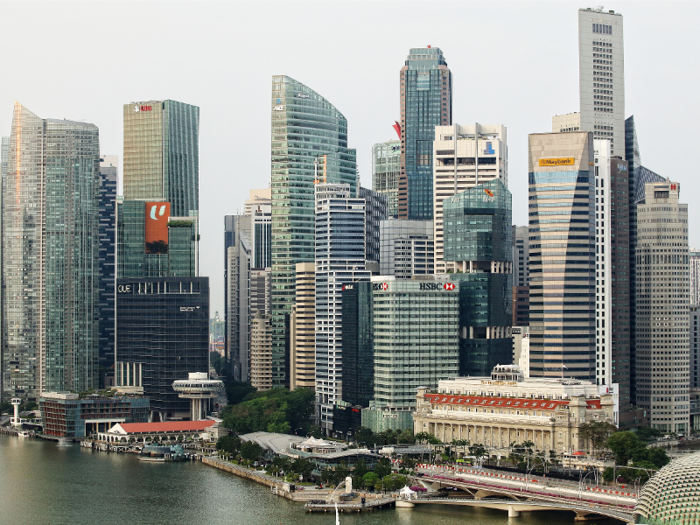
Source: Business Insider
The number of millionaires in the city has been steadily climbing as well. Between mid-2017 and mid-2018, the number of millionaires spiked 11.2% up to 183,737.
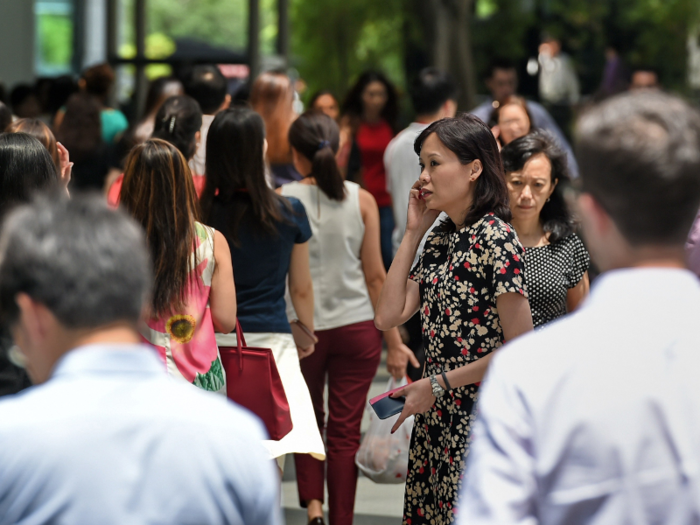
Source: Straits Times
In 2018, it topped the list of the world's most expensive cities to live in for the fifth year in a row in a survey that compared the prices of more than 150 items — including bread, wine, cigarettes, and gas — in 133 cities around the world.
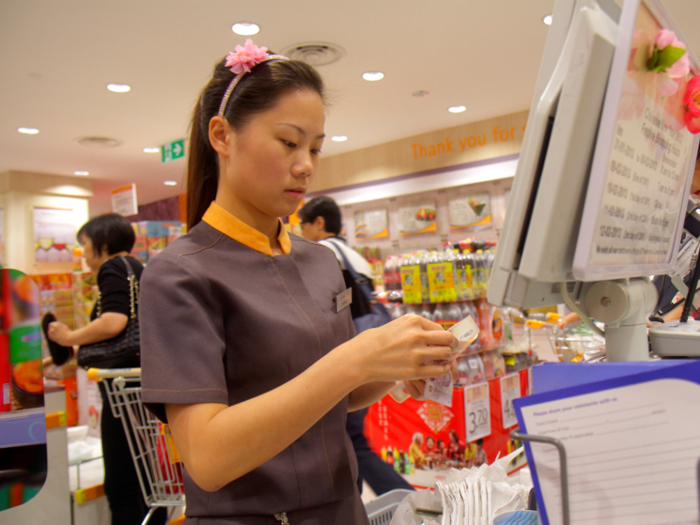
Source: Business Insider
The city's wealthy elite were portrayed in the 2018 blockbuster "Crazy Rich Asians" ...
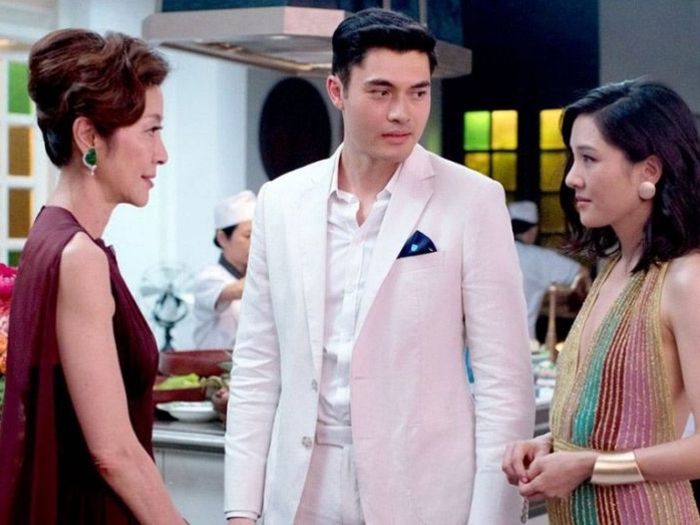
Source: Business Insider
Singapore's real-life billionaires include Robert and Philip Ng, a pair of brothers worth a combined $12.1 billion. They control the Far East Organization, Singapore's largest private landlord and property developer, which was founded by their father, Ng Teng Fong, in 1934.
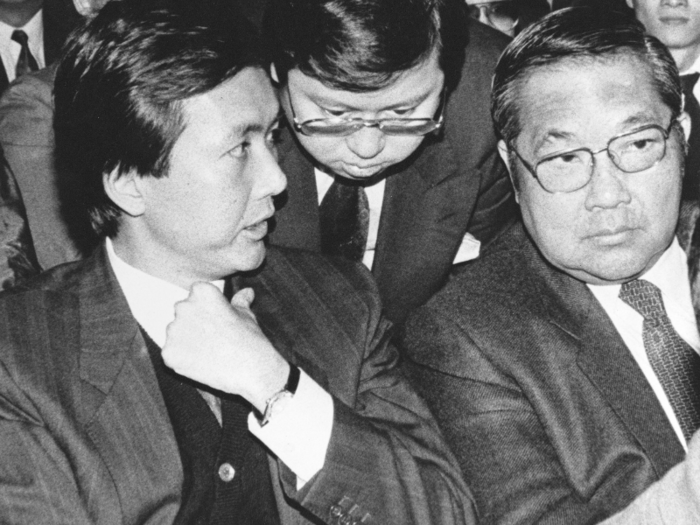
Source: Forbes
Then there's the Wee family. Wee Cho Yaw, who's worth $6.4 billion, founded the United Overseas Bank (UOB), Singapore's third-largest financial institution, in 1935. His son, Wee Ee Cheong, is now chairman and CEO of the bank.
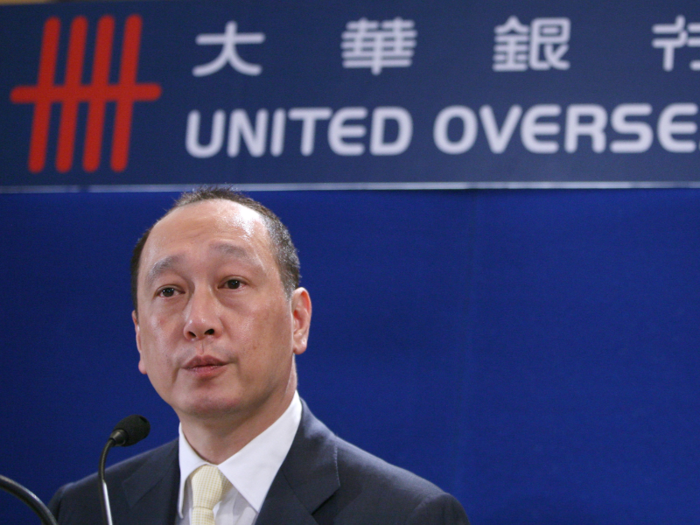
Source: Forbes, Singapore Tatler
According to the South China Morning Post, Singapore's ultra-wealthy rely on tight-knit connections and intermarrying among the richest families to maintain their wealth.

Source: South China Morning Post
For this upper crust, the most coveted homes are called "landed properties," which means the residents own the tract of land, not just a condominium within a building.
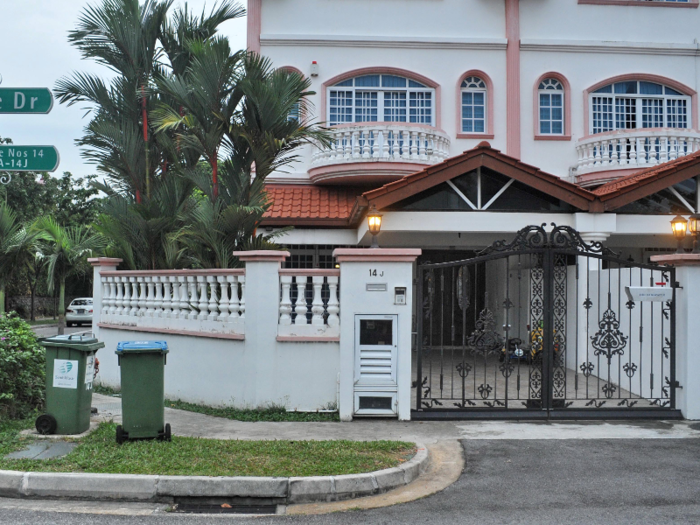
Source: Singapore Property Inc.
"Owning a piece of land in Singapore is certainly a privilege, as land is the most precious resource in the city-state," Christine Li, a senior director and head of research for Singapore at Cushman & Wakefield Inc. told Bloomberg. "Over the past five decades, land prices have appreciated significantly. This has fueled wealth creation for older generations."
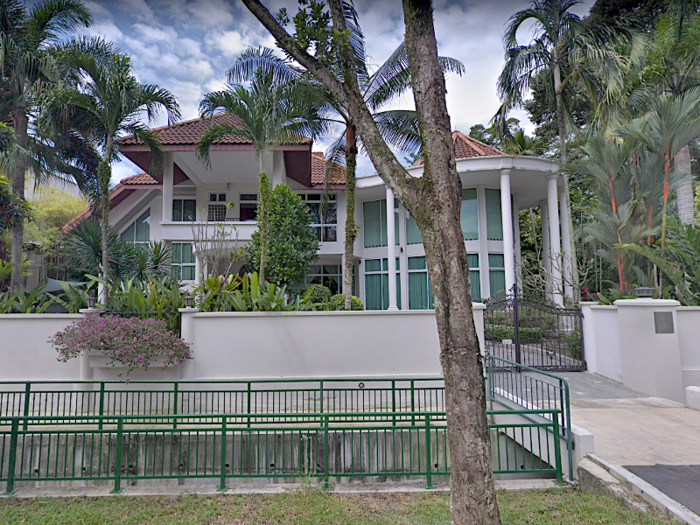
Source: Bloomberg
Owning a landed property is the ultimate "status symbol for the well-heeled" in Singapore, Li added. The most exclusive of these homes are classed as "Good Class Bungalows," or GCBs, which are houses that typically have at least 15,000 square feet of living space.
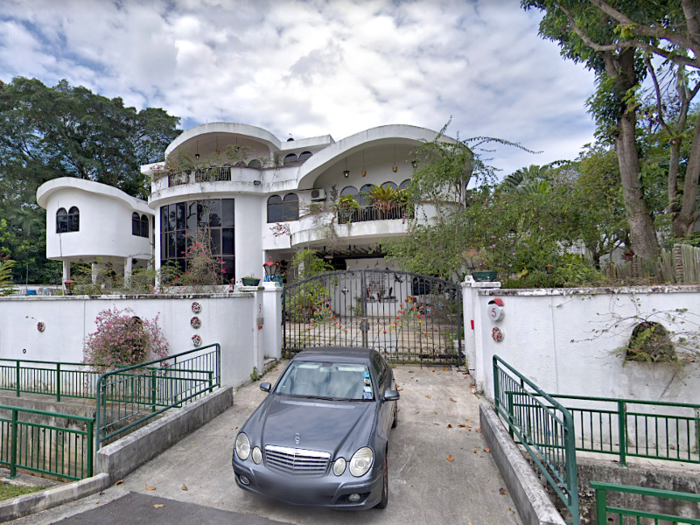
These types of homes are few and far between, however, with only about 2,700 of them on the island. And only the top 5% of earners in Singapore can afford them.
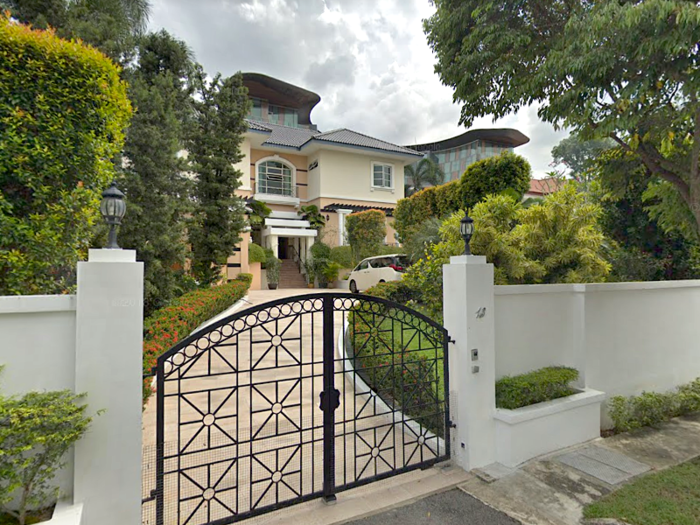
Source: Asia One, Singapore Business Review
And of course, they're astronomically expensive. Singapore's GCBs, which are located primarily in District 10 and 11, tend to cost a least $1,190 per square foot.
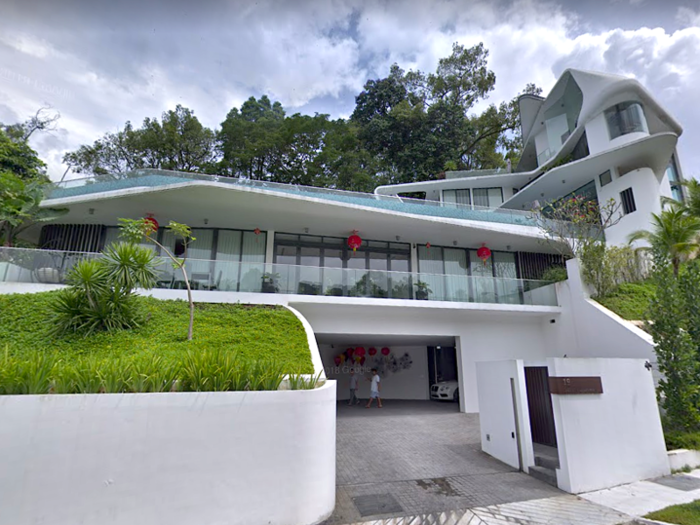
Source: Asia One
The more attainable type of home for Singapore's rich is something like d'Leedon Singapore, a development of seven residential towers and 12 semi-detached villas designed by late Iraqi-British architect Zaha Hadid.
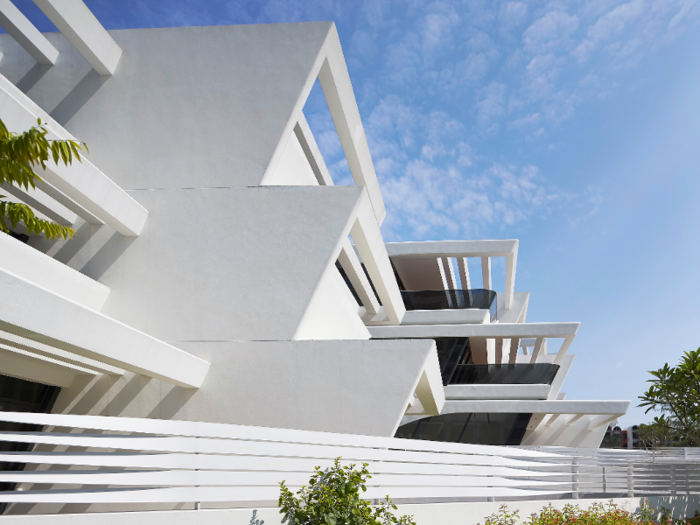
Source: Zaha Hadid
The towers are located in Holland Village, a neighborhood that boasts some of Singapore's wealthiest residents.
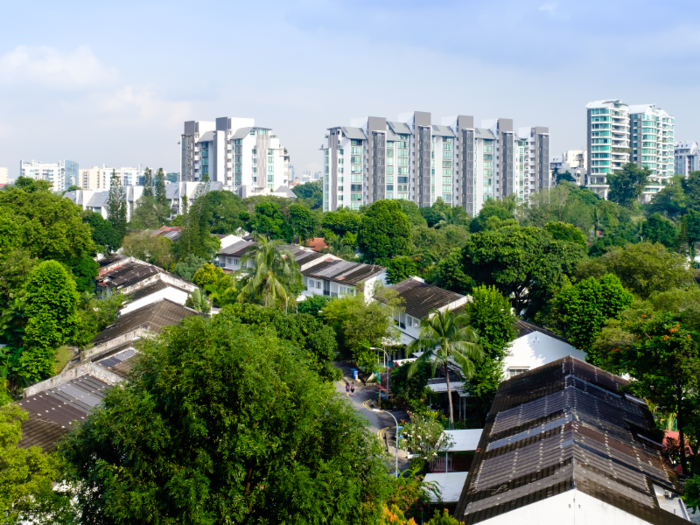
In Holland Village, the single-family homes are tucked away between dense foliage ...
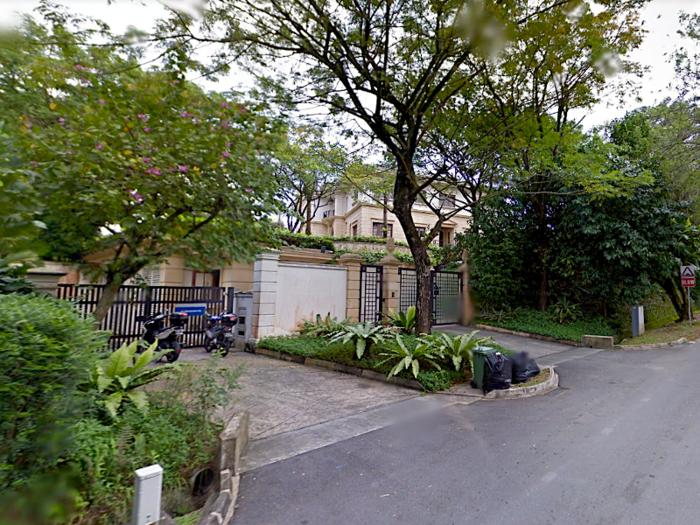
Source: Google Maps
In another of Singapore's ritziest neighborhoods, Orchard Road, luxury apartments start at around $22 million. It's also the city's commercial and shopping hub ...
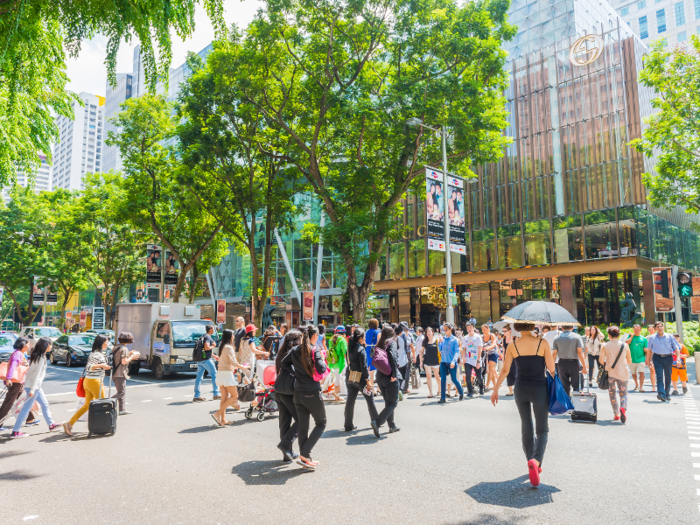
Source: South China Morning Post
When they need to unwind, the city's elite can be found at one of Singapore's luxury spas, such as the Remède Spa at the St. Regis Singapore ...
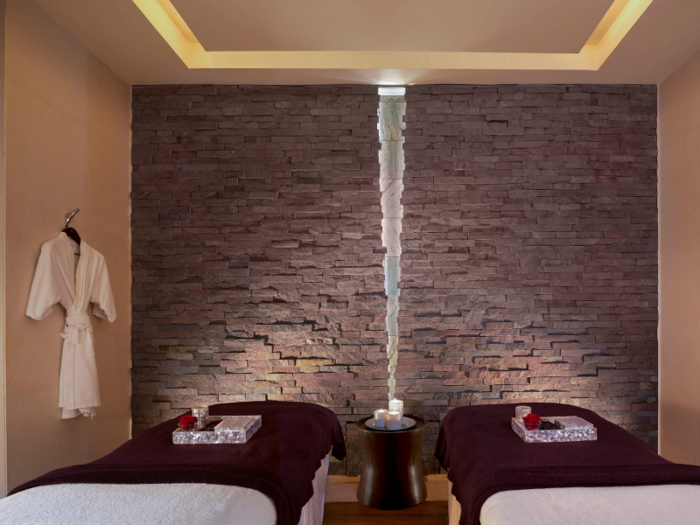
Source: Prestige Online
... or the Auriga Spa at the Cappella Hotel on Singapore's Sentosa Island ...
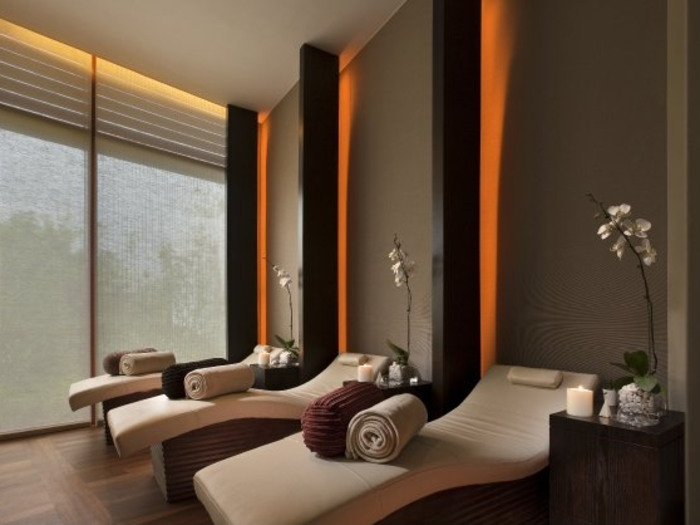
Source: Irish Examiner
... which offers a "bespoke, specially-curated menu of treatments exclusive to Capella Singapore."

Source: Capella Hotels
The resort-like Sentosa Island boasts some of the area's best beaches and a marina where the rich can dock their yachts.
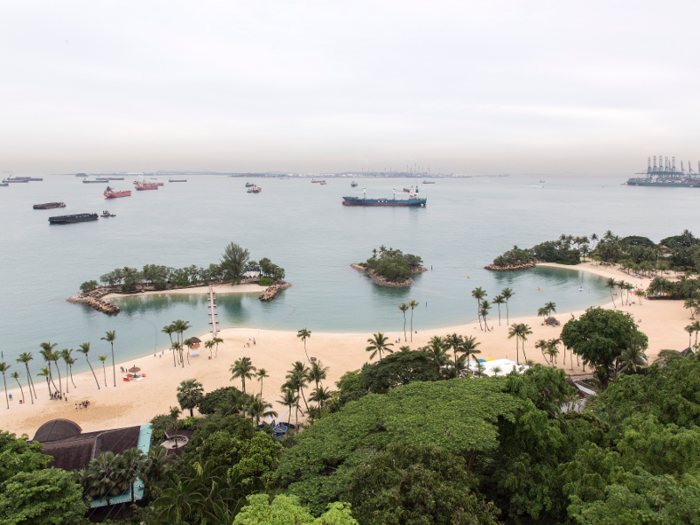
Source: Luxe City Guides
Filled with casinos, water parks, and carnival rides, it's known as "Singapore's Playground."
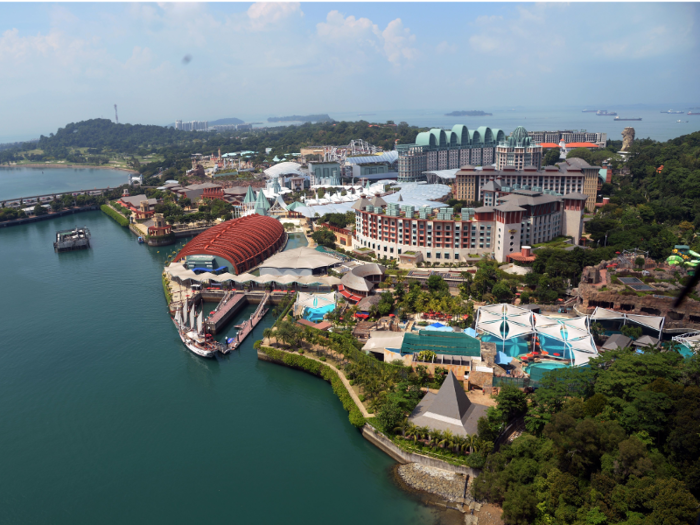
Source: TripAdvisor
But you'll likely find the high fliers at the ritzy Sentosa Golf Club, with its stunning views of Singapore's skyline.
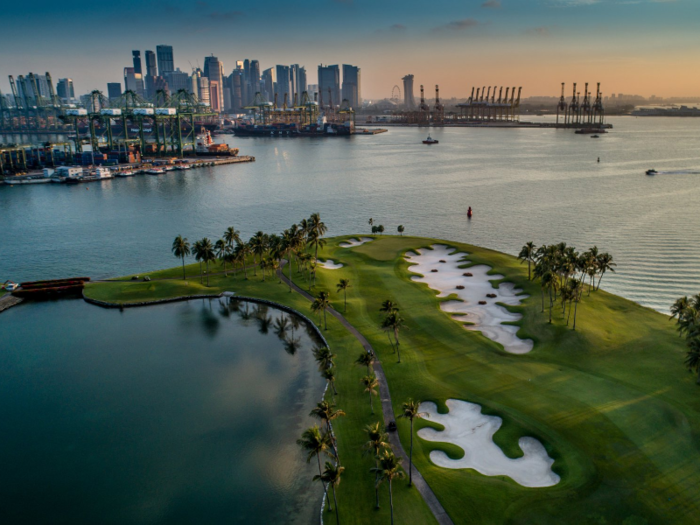
Source: Singapore Guide
The golf course is reportedly frequented by foreign dignitaries and celebrities.

Source: Singapore Guide
When it comes to dining, you might spot a billionaire or two at Cut by Wolfgang Puck, which serves dishes like Japanese Wagyu beef, steak tartare, Veal Tongue, caviar, and Maine lobster.
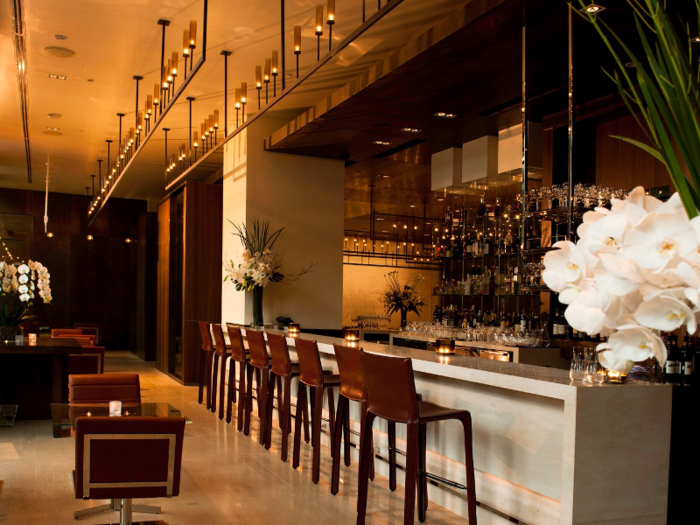
Source: South China Morning Post
It's located in Marina Bay Sands, the iconic Singapore landmark that includes a hotel, casino, museum, shopping mall, and incredible views of the city and the bay.
Source: Business Insider
Other popular dining spots for the wealthy include Waku Ghin, which serves a two-Michelin-starred, 10-course Japanese-European tasting menu ...
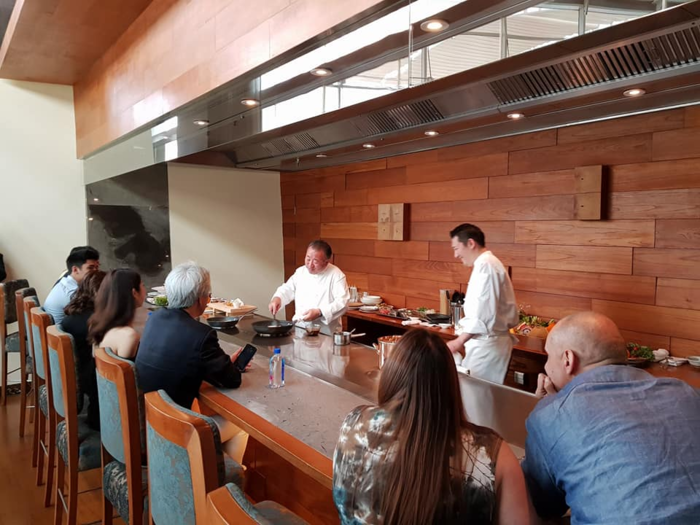
Source: South China Morning Post
... and Tong Le Private Dining, which sits in a revolving tower overlooking Marina Bay and serves dinners in private dining rooms that range from $78 to more than $250 per person.
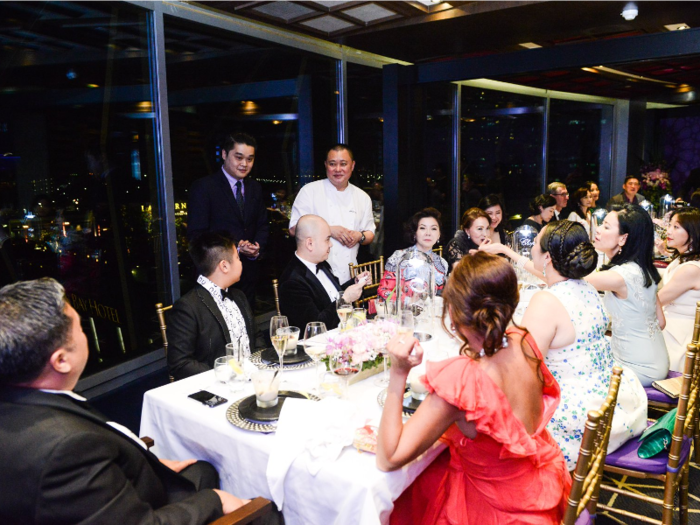
Source: Tong Le Private Dining
When it comes to socializing, Singaporean billionaires can be found mingling at private members-only clubs such as Straits Clan.
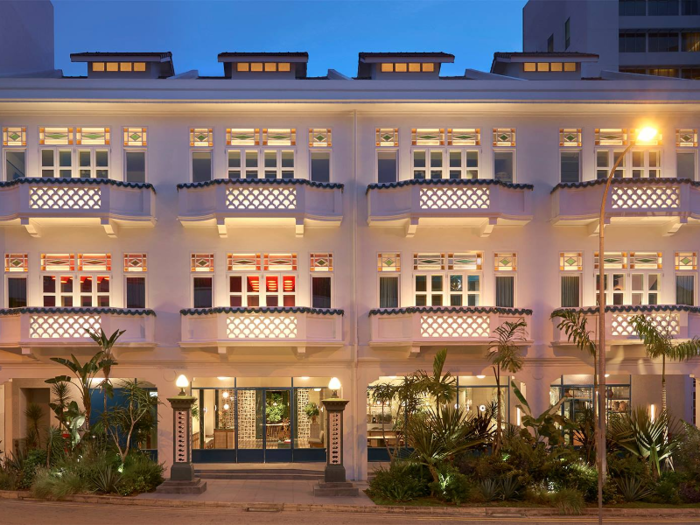
Source: Forbes
Straits Clan costs around $3,400 to join and includes bars, restaurants, workspaces, wellness and fitness spaces, and exclusive events.

Source: Forbes
The club describes its community as "one that is defined by passions, not professions; beyond accolades or achievements, [people] with a great story to tell and an insatiable hunger to know more and do more. [Many are] rising stars, cultural enthusiasts, creative multi-hyphenates, and those fighting the good fight…"
![The club describes its community as "one that is defined by passions, not professions; beyond accolades or achievements, [people] with a great story to tell and an insatiable hunger to know more and do more. [Many are] rising stars, cultural enthusiasts, creative multi-hyphenates, and those fighting the good fight…"](https://staticbiassets.in/thumb/msid-68189413,width-700,height-525,imgsize-982627/the-club-describes-its-community-as-one-that-is-defined-by-passions-not-professions-beyond-accolades-or-achievements-people-with-a-great-story-to-tell-and-an-insatiable-hunger-to-know-more-and-do-more-many-are-rising-stars-cultural-enthusiasts-creative-multi-hyphenates-and-those-fighting-the-good-fight.jpg)
Source: Forbes
But while Straits Clan caters to a newer generation, one of the oldest private clubs in Singapore is the super-exclusive Tanglin Club, which was founded in 1865 by Thomas Dunman, Singapore's first police commissioner. Membership fees are about $4,500 per year.
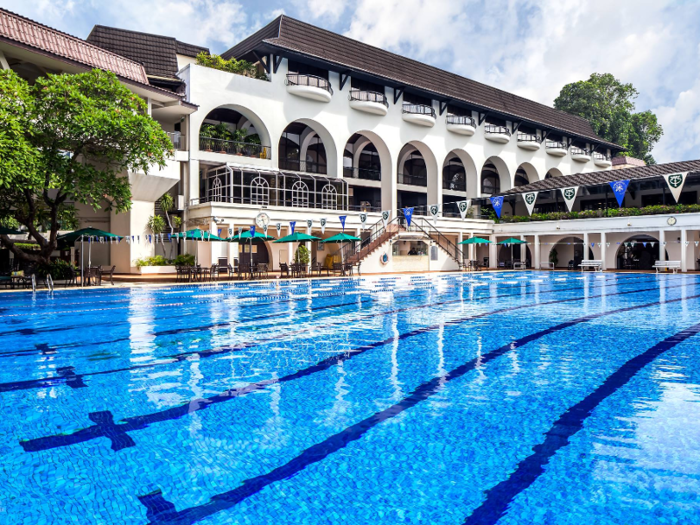
Source: Singapore Tatler, Tanglin Club
To become a member, an applicant must be nominated by two active members who have been in the club for at least three years. The average wait time to join Tanglin is 10 to 15 years.

Source: Singapore Tatler
If they're not educated at in the US or England, the children of Singapore's elite likely attend one of several schools in the city.

Source: Independent, Asia One
One of the most prestigious is the Anglo-Chinese School, founded in 1886, where tuition can cost as low as $3,250 per year for residents and up to $22,000 for foreign students.

Source: Independent, Asia One
The school for the well-heeled is known for turning out many of Singapore's top leaders, entrepreneurs, and athletes.

Source: Key Location
Another one of the oldest and most prominent schools in Singapore is Raffles Institution, founded in 1823.

Source: Wall Street Journal
Fees are about $2,700 a year for Singapore residents and about $18,700 for non-residents.

Source: Raffles Institution
Popular Right Now
Advertisement
